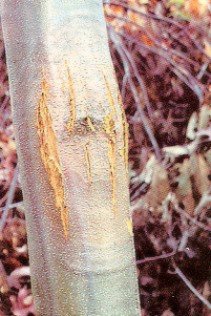GGB
Masterpiece
@PABonsai I mostly do agree with what you said. I’m also aware that we have more forests now than 100 years ago. But 100 years ago we cut the forests down, now they’re just dying off beyond our control.
I keep things fairly brief on here but I went to school for environmental science. I’m fully aware of ecosystems and how they’ll rebalance. In fact, a hands off approach is about the only way to let it happen. BUT once again, in my opinion.. and it could be wrong. It looks like we’ve really dumped a lot on her at once this time. The original point of the thread was just to see if other areas were as jacked up as here, not to fear monger. Although you did catch me in a moment of “hand wringing” weakness a few posts back. I’m a wu-wei-let-it-roll kind of guy. And frankly all we can do at this point is watch it happen anyway, ain’t no one controlling the rain.... that would be a different thread
I keep things fairly brief on here but I went to school for environmental science. I’m fully aware of ecosystems and how they’ll rebalance. In fact, a hands off approach is about the only way to let it happen. BUT once again, in my opinion.. and it could be wrong. It looks like we’ve really dumped a lot on her at once this time. The original point of the thread was just to see if other areas were as jacked up as here, not to fear monger. Although you did catch me in a moment of “hand wringing” weakness a few posts back. I’m a wu-wei-let-it-roll kind of guy. And frankly all we can do at this point is watch it happen anyway, ain’t no one controlling the rain.... that would be a different thread



